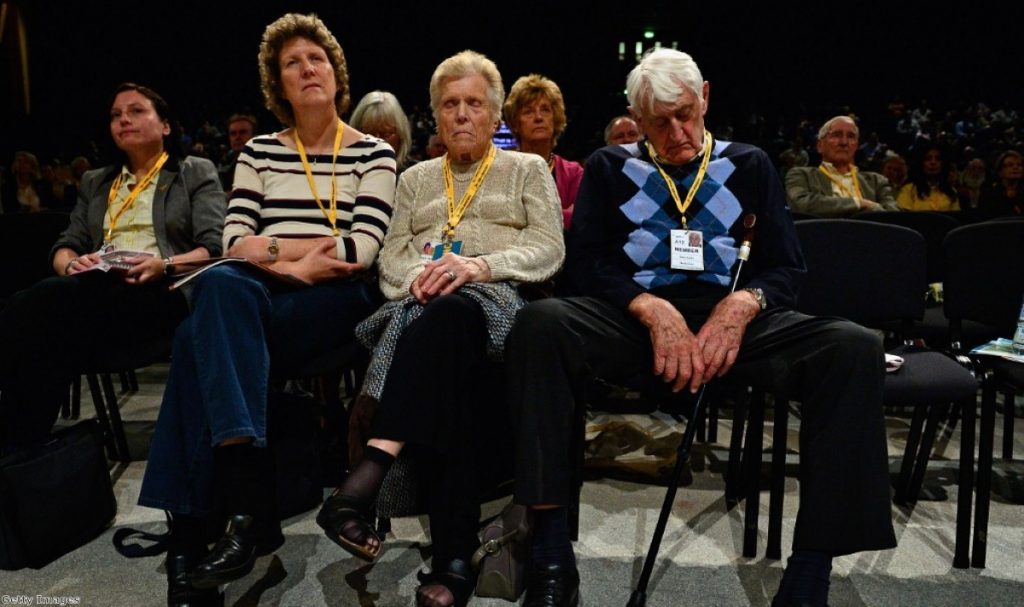Boring conferences, fixed terms and a midterm sag
This was, perhaps, the most boring conference season of modern times. And the coalition's constitutional reform agenda has been at least partly to blame.
Never before have we been over two years into a government and had so little speculation about when the next general election might be. The first party conference season after a general election is usually a time for reflection and adjustment. Twelve months later, the new government's reforms are usually stimulating ferocious debate. A further year on, and some of the steam will inevitably have gone out of the government machine. That is certainly the case with the coalition, which – having passed into law a series of potentially radical reforms – has been left scratching its collective head after the Lords reform farce.
Usually, three conferences after a general election, another national contest for power could be as little as 18 months away. There is normally at least a possibility by now that the prime minister might judge it most expedient to go to the country sooner rather than later. Not this time. The Fixed Term Parliament Act, passed to ensure the longevity of the coalition, means David Cameron no longer has that option. We know there is still another two years and seven months until the next general election. It's starting to drag.
The mental effect this has on the state of British politics was never really predicted at the time. Now we've learned the miserable reality of the situation: an unforeseen consequence of Cameron and Nick Clegg's alliance has been the tedium of predictability. Stability is often feted as a good thing by the coalition, but it does not make for particularly interesting headlines. Or conference newslines.


'Absolutely no idea'
It is entirely ironic that one side-effect of the coalition's stalled tinkering with its constitution might give the Conservatives some breathing space. Electoral reform, Lords reform, boundary changes: the coalition's much-vaunted moves to shake up British politics don't seem to be amounting to much. So much has been ruled out that there is not much left to debate, let alone write, about. But, at the Tory party conference in Birmingham this week, some have been doing a bit of thinking.
What will the party's 2015 manifesto have to say about Lords reform, for example? "I have absolutely no idea," Tory backbencher Conor Burns said in an event hosted by the Electoral Reform Society earlier this week. "It is a debate we need to have." The former leader of the House of Commons, Sir George Young, who also attended the meeting, worried about the same issue. "We've got to say something," he told me. But how do you deal with dissent? If 90 MPs decide they don't like what's offered in the manifesto, are they to be deselected?
As yet, the Tory party has no answers. Fixed term parliaments, as well as securing the coalition's lifetime until 2015 and helping inflict the lacklustre boredom which has hung over this year's party conferences, will also give the Conservatives the time to come up with an answer.

